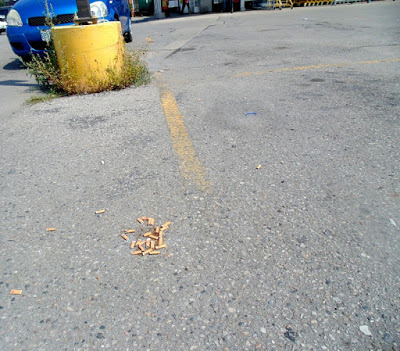Rob Mclennan's Blog, page 341
June 23, 2016
12 or 20 (second series) questions with Mark de Silva
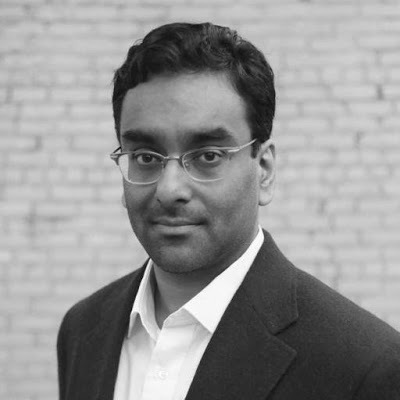 Mark de Silva
holds degrees in philosophy from Brown (AB) and Cambridge (PhD). Having served for several years on the editorial staff of the New York Times’s opinion pages, he now freelances for the paper’s Sunday magazine. He is the author of “Distant Visions,” a critical essay on the state of contemporary fiction recently published in 3:AM Magazine, where he serves as a contributing editor.
Square Wave
, released in February by Two Dollar Radio, is his first novel.
Mark de Silva
holds degrees in philosophy from Brown (AB) and Cambridge (PhD). Having served for several years on the editorial staff of the New York Times’s opinion pages, he now freelances for the paper’s Sunday magazine. He is the author of “Distant Visions,” a critical essay on the state of contemporary fiction recently published in 3:AM Magazine, where he serves as a contributing editor.
Square Wave
, released in February by Two Dollar Radio, is his first novel.1 - How did your first book change your life? How does your most recent work compare to your previous? How does it feel different?
Since I’ve written close to no fiction previously, I suppose it showed me what I was capable of. My most significant previous written work is a doctoral dissertation in the philosophy of mind. The novel is a little more accessible, I hope, and more alive.
2 - How did you come to fiction first, as opposed to, say, poetry or non-fiction?
I came to non-fiction—academic philosophy—first, actually. But the feeling that it didn’t quite map on to my interests and temperament is what drove me to write fiction.
3 - How long does it take to start any particular writing project? Does your writing initially come quickly, or is it a slow process? Do first drafts appear looking close to their final shape, or does your work come out of copious notes?
The longer the project, the longer it takes to get it up and running. I do take notes, but those don’t figure directly in the drafting. I write pretty slowly—sometimes just 400 words in a day—but the words are usually pretty worthwhile.
4 - Where does a work of fiction usually begin for you? Are you an author of short pieces that end up combining into a larger project, or are you working on a "book" from the very beginning?
I prefer undertaking big projects, so I think I generally know I’m working on a book. I would have a hard time setting out to write something I thought might only be a short story, at least right now. Having a book behind me, though, I might come to feel differently.
5 - Are public readings part of or counter to your creative process? Are you the sort of writer who enjoys doing readings?
I’ve only just started doing fiction readings, so I’ll have to see how it goes. I do want to see what it’s possible to convey in a reading that might not come across otherwise.
6 - Do you have any theoretical concerns behind your writing? What kinds of questions are you trying to answer with your work? What do you even think the current questions are?
I think I like to explore and depict how the world, and consciousness itself, manages, through all the obvious heterogeneity, to hang together--how all the elements manage to co-exist somehow, however riotously. That is a classical philosophical goal, and I suppose that’s what I carry over into my fiction. The current questions are probably too many to name, or anyway a mystery to frame. But I don’t really start with questions. I start by entertaining the phenomena, some of it subjective, some of it less so. From that a sense of what matters, what is mysterious, what else one wants to know, emerges.
7 – What do you see the current role of the writer being in larger culture? Does s/he even have one? What do you think the role of the writer should be?
As far as the larger culture is concerned, the writer of literary fiction mostly has the role, if he has any luck, of writing novels that might be adapted into Hollywood films that in their turn might bear upon the country’s consciousness. Otherwise he is mostly invisible—just as most scientists, philosophers, and visual artists are. No shame in that.
8 - Do you find the process of working with an outside editor difficult or essential (or both)?
I haven’t found it difficult so far, and it has been helpful to me.
9 - What is the best piece of advice you've heard (not necessarily given to you directly)?
Maybe “Never look back”? I’ve always had trouble taking this bit of advice, though.
10 - How easy has it been for you to move between genres (fiction to non-fiction)? What do you see as the appeal?
The appeal of moving between genres? There isn’t much appeal to it, per se. I think fiction is most satisfying to me on a daily basis. I write non-fiction now only when something very specific presses on me.
11 - What kind of writing routine do you tend to keep, or do you even have one? How does a typical day (for you) begin?
With fiction, I try to write for 3 hours a day, 5 or 6 days a week. With non-fiction, there’s no schedule really. Just as much as I can.
12 - When your writing gets stalled, where do you turn or return for (for lack of a better word) inspiration?
It doesn’t really stall when a project is active. Between projects is sometimes a challenge. I try to avoid the usual diversions of modern life for a week or so, and usually I’m able to get things going that way.
13 - What fragrance reminds you of home?
Home these days is Manhattan, so car exhaust and steaming garbage. As for my childhood home, in California, the simple smell of freshly mown grass tends to do it. Nothing exotic.
14 - David W. McFadden once said that books come from books, but are there any other forms that influence your work, whether nature, music, science or visual art?
Music is one of the topics covered in my novel, and I used to play guitar and drums pretty avidly, so certainly that has been important—music from indie rock all the way to experimental art music. Film and TV must have had an influence—I can’t see how not, in a world as saturated in those media as ours—but perhaps a less conscious one than music. Visual art plays a large role in the new novel I’m writing, so it is coming to have a major influence, I think, as I visit galleries in New York holding some of the relevant paintings and prints (for instance, Henri de Toulouse-Lautrec’s).
15 - What other writers or writings are important for your work, or simply your life outside of your work?
Here are five I come back to: Coetzee, Naipaul, Salter, Marias, DeLillo. Lately I’ve been reading Rupert Thomson, Dana Spiotta, and Diane Williams.
16 - What would you like to do that you haven't yet done?
Write a page-turner, maybe? That might be nice.
17 - If you could pick any other occupation to attempt, what would it be? Or, alternately, what do you think you would have ended up doing had you not been a writer?
I think it’s pretty clear the alternative would be academic philosophy. In just the right context, that might have worked for me. But the professionalization of academe over the last half-century or so means that that context probably doesn’t exist anymore.
18 - What made you write, as opposed to doing something else?
I think I felt it was my ultimate strength—words—along with being, I’m starting to think, my ultimate pleasure.
19 - What was the last great book you read? What was the last great film?
I recently read Ian McEwan’s The Child in Time. I don’t know if I think the book as a whole is great, but I do know I was stunned by the narrative power of several of the scenes. I also read Knut Hamsun’s Hunger. Perhaps that’s a book that’s more straightforwardly great. As for film, I used to watch a great deal more of it than I do now. I saw Juice on HBO the other day. It was nice to see Pac again.
20 - What are you currently working on?
I’ve got a second novel underway. It’s more linear in construction, as I imagine it now, anyway. The book will take up an obsession of both the Arts & Crafts Movement and the Bauhaus: the aesthetics of the everyday, the designed-ness of urban life.
12 or 20 (second series) questions;
Published on June 23, 2016 05:31
June 22, 2016
June 21, 2016
Queen Mob’s Teahouse: Five questions for Sara Uribe and John Pluecker by David Buuck (translated by John Pluecker,
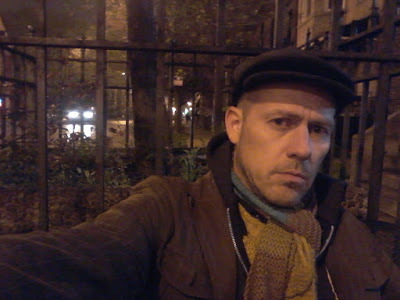 As my tenure as interviews editor at Queen Mob's Teahouse continues, the eleventh interview is now online:
Five questions for Sara Uribe and John Pluecker about Antígona González by David Buuck [pictured] (translated by John Pluecker)
. Other interviews from my tenure include: an interview with poet, curator and art critic Gil McElroy, conducted by Ottawa poet Roland Prevost, an interview with Toronto poet Jacqueline Valencia, conducted by Lyndsay Kirkham, an interview with Drew Shannon and Nathan Page, also conducted by Lyndsay Kirkham, an interview with Ann Tweedy conducted by Mary Kasimor, an interview with Katherine Osborne, conducted by Niina Pollari, an interview with Catch Business, conducted by Jon-Michael Frank and a conversation between Vanesa Pacheco and T.A. Noonan, "On Translation and Erasure," existing as an extension of Jessica Smith's The Women in Visual Poetry: The Bechdel Test, produced via Essay Press.
As my tenure as interviews editor at Queen Mob's Teahouse continues, the eleventh interview is now online:
Five questions for Sara Uribe and John Pluecker about Antígona González by David Buuck [pictured] (translated by John Pluecker)
. Other interviews from my tenure include: an interview with poet, curator and art critic Gil McElroy, conducted by Ottawa poet Roland Prevost, an interview with Toronto poet Jacqueline Valencia, conducted by Lyndsay Kirkham, an interview with Drew Shannon and Nathan Page, also conducted by Lyndsay Kirkham, an interview with Ann Tweedy conducted by Mary Kasimor, an interview with Katherine Osborne, conducted by Niina Pollari, an interview with Catch Business, conducted by Jon-Michael Frank and a conversation between Vanesa Pacheco and T.A. Noonan, "On Translation and Erasure," existing as an extension of Jessica Smith's The Women in Visual Poetry: The Bechdel Test, produced via Essay Press.Further interviews I've conducted myself over at Queen Mob's Teahouse include: Stephanie Bolster on Three Bloody Words, Claire Farley on Canthius, Dale Smith on Slow Poetry in America, Allison Green, Meredith Quartermain, Andy Weaver, N.W Lea and Rachel Loden.
If you are interested in sending a pitch for an interview my way, check out my "about submissions" write-up at Queen Mob's ; you can contact me via rob_mclennan (at) hotmail.com
Published on June 21, 2016 05:31
June 20, 2016
On Writing : an occasional series
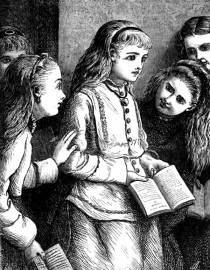 We're three years and nearly one hundred essays into the occasional series of "On Writing" essays I've been curating over at the ottawa poetry newsletter blog. I've included an updated list, below, of those pieces posted so far, and the list is becoming quite substantive. Way (way) back in April, 2012, I discovered (thanks to Sarah Mangold) the website for the NPM Daily, and absolutely loved the short essays presented on a variety of subjects surrounding the nebulous idea of “on writing,” prompting me to kick-start a similar series of responses to the question of writing.
We're three years and nearly one hundred essays into the occasional series of "On Writing" essays I've been curating over at the ottawa poetry newsletter blog. I've included an updated list, below, of those pieces posted so far, and the list is becoming quite substantive. Way (way) back in April, 2012, I discovered (thanks to Sarah Mangold) the website for the NPM Daily, and absolutely loved the short essays presented on a variety of subjects surrounding the nebulous idea of “on writing,” prompting me to kick-start a similar series of responses to the question of writing.Forthcoming: new essays by Vanessa Lent, Brian Henderson, Dale Smith, Daniel Zomparelli, Karl Jirgens, Bruce Whiteman, Geoffrey Young, Molly Gaudry and Jennifer Baker.
On Writing #97 : Paul Pearson : WRITING IS FAILING: My 10 Rules for Writing ; On Writing #96 : Mer Brebner : You always swore you wouldn't... ; On Writing #95 : Claudia Coutu Radmore : The Poetry Three ; On Writing #94 : Valerie Coulton : On Writing ; On Writing #93 : lars palm : first things first ; On Writing #92 : Ashley-Elizabeth Best : The Hard Remainder ; On Writing #91 : A.J. Levin : The Curse of Writing Poetry ; On Writing #90 : Julie Morrissy : On Writing ; On Writing #89 : Alice Zorn : Fixings ; On Writing #88 : Lillian Necakov : Writing is a Hyena ; On Writing #87 : Ken Norris : ON WRITING ; On Writing #86 : Jani Krulc : Practice, practice: On writing and yoga ; On Writing #85 : Steven Artelle : On Writing ; On Writing #84 : Chris Eaton : On Writing ; On Writing #83 : Kaie Kellough : Ceremony ; On Writing #82 : Jacqueline Valencia : On Writing ; On Writing #81 : Kevin Killian : Writing the Anthropocene ; On Writing #80 : Mike Spry : On Writing ; On Writing #79 : Dina Del Bucchia : OMG. Watch TV! ; On Writing #78 : Michelle Berry : On Writing ; On Writing #77 : Eric Schmaltz : Writing as an Intimacy with Machines ; On Writing #76 : Barbara Tomash : Dear PRE- ; On Writing #75 : Eileen R. Tabios : NO LONGER CASUAL ; On Writing #74 : Sheryda Warrener : Make It New ; On Writing #73 : Pam Brown : Writing ; On Writing #72 : Renee Rodin : The Nub ; On Writing #71 : Rebecca Rosenblum : Ways to Help a Fellow Writer with His/Her Work ; On Writing #70 : Susannah M. Smith : On Writing ; On Writing #69 : Natalie Simpson : On Writing ; On Writing #68 : Jennifer Kronovet : Fighting and Writing ; On Writing #67 : George Stanley : Writing Old Age ; On Writing #66 : George Fetherling : On Writing ; On Writing #65 : Gail Scott : THE ATTACK OF DIFFICULT PROSE ; On Writing #64 : Laisha Rosnau : The Long Game ; On Writing #63 : Arjun Basu : Write ; On Writing #62 : Angie Abdou : The Writer & The Bottle ; On Writing #61 : Carolyn Marie Souaid : Lawyers, Liars & Writers ; On Writing #60 : Priscila Uppal : On Creative Health ; On Writing #59 : Sky Gilbert : Yes, They Live ; On Writing #58 : Peter Richardson : Cellar Posting ; On Writing #57 : Catherine Owen : "Bright realms of promise": ON THE POETIC ; On Writing #56 : Sarah Burgoyne : a series of permissions-givings ; On Writing #55 : Anne Fleming : Funny ; On Writing #54 : Julie Joosten : On Haptic Pleasures: an Avalanche, the Internet, and Handwriting ; On Writing #53 : David Dowker : Micropoetics, or the Decoherence of Connectionism ; On Writing #52 : Renée Sarojini Saklikar : No language exists on the outside. Finders must venture inside. ; On Writing #51 : Ian Roy : On Writing, Slowly ; On Writing #50 : Rob Budde : On Writing ; On Writing #49 : Monica Kidd : On writing and saving lives ; On Writing #48 : Robert Swereda : Why Bother? ; On Writing #47 : Missy Marston : Children vs Writing: CAGE MATCH! ; On Writing #46 : Carla Barkman : Tastes Like Chicken ; On Writing #45 : Asher Ghaffar : The Pen: ; On Writing #44 : Emily Ursuliak : Writing on Transit ; On Writing #43 : Adam Sol : How I Became a Writer ; On Writing #42 : Jason Christie : To Paraphrase ; On Writing #41 : Gary Barwin : ON WRITING ; On Writing #40 : j/j hastain : Infinite Chakras: a Trans-Temporal Mini-Memoir ; On Writing #39 : Peter Norman : Red Pen of Fury! ; On Writing #38 : Rupert Loydell : Intricately Entangled ; On Writing #37 : M.A.C. Farrant : Eternity Delayed ; On Writing #36 : Gil McElroy : Building a Background ; On Writing #35 : Charmaine Cadeau : Stupid funny. ; On Writing #34 : Beth Follett : Born of That Nothing ; On Writing #33 : Marthe Reed : Drawing Louisiana ; On Writing #32 : Chris Turnbull : Half flings, stridence and visual timber ; On Writing #31 : Kate Schapira : On Writing (Sentences) ; On Writing #30 : Michael Bryson : On Writing ; On Writing #29 : Sara Heinonen : On Writing ; On Writing #28 : Stan Rogal : Writers' Anonymous ; On Writing #27 : Lola Lemire Tostevin : What's in a name? ; On Writing #26 : Kevin Spenst : On Writing ; On Writing #25 : Kate Cayley : An Effort of Attention ; On Writing #24 : Gregory Betts : On Writing ; On Writing #23 : Hailey Higdon : Hiding Places ; On Writing #22 : Matthew Firth : How I write ; On Writing #21 : Nichole McGill : Daring to write again ; On Writing #20 : Rob Thomas : Hey, Short Stuff!: On Writing Kids ; On Writing #19 : Anik See : On Writing ; On Writing #18 : Eric Folsom : On Writing ; On Writing #17 : Edward Smallfield : poetics as space ; On Writing #16 : Sonia Saikaley : Writing Before Dawn to Answer a Curious Calling ; On Writing #15 : Roland Prevost : Ink / Here ; On Writing #14 : Aaron Tucker : On Writing ; On Writing #13 : Sean Johnston : On Writing ; On Writing #12 : Ken Sparling : From some notes for a writing workshop ; On Writing #11 : Abby Paige : On the Invention of Language ; On Writing #10 : Adam Thomlison : On writing less ; On Writing #9 : Christian McPherson : On Writing ; On Writing #8 : Colin Morton : On Writing ; On Writing #7 : Pearl Pirie : Use of Writing ; On Writing #6 : Faizel Deen : Summer, Ottawa. 2013. ; On Writing #5 : Michael Dennis : Who knew? ; On Writing #4 : Michael Blouin : On Process ; On Writing #3 : rob mclennan : On writing (and not writing) ; On Writing #2 : Amanda Earl : Community ; On Writing #1 : Anita Dolman : A little less inspiration, please (Or, What ever happened to patrons, anyway?)
Published on June 20, 2016 05:31
June 19, 2016
12 or 20 (second series) questions with Sofia Banzhaf
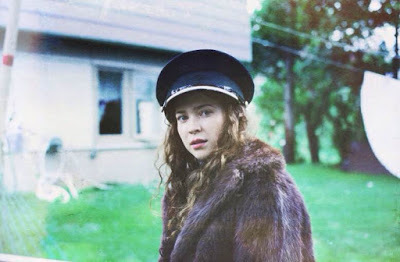 Sofia Banzhaf is the author of
Pony Castle
.
Sofia Banzhaf is the author of
Pony Castle
. 1 - How did your first book change your life? How does your most recent work compare to your previous? How does it feel different? I met a lot of good people. My new work is like my old work, which is cool if you like my old work. I'm experimenting more with format. And I'm writing more for the screen.
2 - How did you come to fiction first, as opposed to, say, poetry or non-fiction? Fiction demands a precision of the imagination which I enjoy. It demands your complete investment in the world you create, for a long period of time.
3 - How long does it take to start any particular writing project? Does your writing initially come quickly, or is it a slow process? Do first drafts appear looking close to their final shape, or does your work come out of copious notes? I take a lot of notes. No notes, no glory.
4 - Where does a work of fiction usually begin for you? Are you an author of short pieces that end up combining into a larger project, or are you working on a "book" from the very beginning? A work of fiction begins when my need to not feel totally alone becomes overwhelming. I haven't set out to write a book because that would be creatively damaging for someone who has a resistance to authority and a tendency to self-sabotage. As long as I write or edit every day, with that being the goal itself, I feel good.
5 - Are public readings part of or counter to your creative process? Are you the sort of writer who enjoys doing readings? If I drink enough I will totally enjoy myself.
6 - Do you have any theoretical concerns behind your writing? What kinds of questions are you trying to answer with your work? What do you even think the current questions are? I think if I was conscious of those questions or concerns, I wouldn't be writing.
7 – What do you see the current role of the writer being in larger culture? Does s/he even have one? What do you think the role of the writer should be? All of writing is a huge lake. There are great rivers that feed the lake, and there are mere trickles. All that matters is feeding the lake. I don't matter. The lake matters. You must keep feeding the lake.
8 - Do you find the process of working with an outside editor difficult or essential (or both)? Essential.
9 - What is the best piece of advice you've heard (not necessarily given to you directly)? The road is long, we carry on, try to have fun in the meantime - Lana Del Rey.
10 - How easy has it been for you to move between genres (fiction to film to acting)? What do you see as the appeal? Moving between mediums isn't a conscious act for me. I do what I'm pulled towards and what I'm fortunate enough to have the opportunity to do.
11 - What kind of writing routine do you tend to keep, or do you even have one? How does a typical day (for you) begin? A typical day begins with anxiety. I have a little pocket book of the Tao Te Ching which I read almost every morning and that calms me. If that fails, I'll drink a screwdriver and take a bath. I don't have a writing routine.
12 - When your writing gets stalled, where do you turn or return for (for lack of a better word) inspiration? I read my friends' work. Something about it being so immediate/contemporary/close to me shocks me into action again.
13 - What fragrance reminds you of home? This question is borderline insane. Like, where did it come from? I like it though.
14 - David W. McFadden once said that books come from books, but are there any other forms that influence your work, whether nature, music, science or visual art? I like reality TV. I've been watching the Anna Nicole Smith show a lot.
15 - What other writers or writings are important for your work, or simply your life outside of your work? Trevso_Electric and Audrey Wollen.
16 - What would you like to do that you haven't yet done? Eat a shrimp cocktail at the top of the CN tower. Defeather a goose.
17 - If you could pick any other occupation to attempt, what would it be? Or, alternately, what do you think you would have ended up doing had you not been a writer? Reality TV star. I'm confrontational and sex-obsessed which would probably make for good entertainment.
18 - What made you write, as opposed to doing something else? I possess very few real life skills.
19 - What was the last great book you read? What was the last great film? Voyage in the Dark by Jean Rhys. Killer of Sheep by Charles Burnett.
20 - What are you currently working on? I'm working on a second book. I'm also working on a piece for the new issue of the Four Poets with Rachel Bell, Ruby Brunton and Fan Wu. That's launching in April [2016]. I'm in post-production on a feature film I co-wrote and co-directed, and I'm developing a series with JASH and Nicole Dorsey. Thank you god bless.
12 or 20 (second series) questions;
Published on June 19, 2016 05:31
June 18, 2016
from the desk of rob mclennan : real pants,
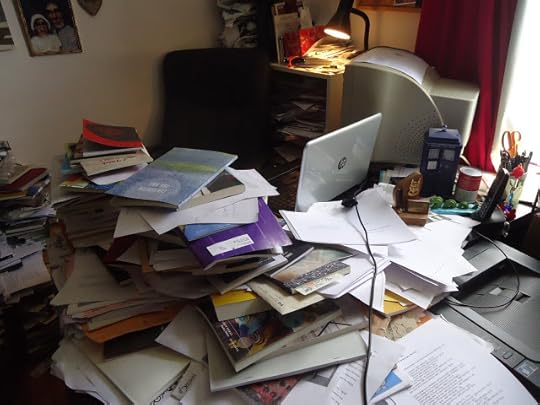 I've been included in the "from the desk of" series over at Real Pants, in which I write about my desk
. Why am I always writing about my desk? I seem to have done that a bunch over the past couple of years, from the "At the Desk" series in 2014 over at Open Book: Ontario, on "Writing Spaces" for The New Quarterly, and even as part of Amish Trivedi's "Where Do You Write, My Lovely?" blog (which he should really do more of). And then, of course, the same desk but my prior office. I've even done a number of "on writing" pieces over the past couple of years as well, from this one "On Attention" for The Malahat Review, a little write-up on composing my "goldfish" sequence, on composing short fiction for Numero Cinq, on writing the fragment, another on short fiction for The Town Crier, and "On Writing" for Catina Noble, as well as my more recent "my writing day" piece. Given I've been telling myself I'm attempting to complete a manuscript of short fiction amid the small children we keep building, I really do have a lot of other stuff I think I need to say...
I've been included in the "from the desk of" series over at Real Pants, in which I write about my desk
. Why am I always writing about my desk? I seem to have done that a bunch over the past couple of years, from the "At the Desk" series in 2014 over at Open Book: Ontario, on "Writing Spaces" for The New Quarterly, and even as part of Amish Trivedi's "Where Do You Write, My Lovely?" blog (which he should really do more of). And then, of course, the same desk but my prior office. I've even done a number of "on writing" pieces over the past couple of years as well, from this one "On Attention" for The Malahat Review, a little write-up on composing my "goldfish" sequence, on composing short fiction for Numero Cinq, on writing the fragment, another on short fiction for The Town Crier, and "On Writing" for Catina Noble, as well as my more recent "my writing day" piece. Given I've been telling myself I'm attempting to complete a manuscript of short fiction amid the small children we keep building, I really do have a lot of other stuff I think I need to say...
Published on June 18, 2016 05:31
June 17, 2016
U of Alberta writers-in-residence interviews: Marina Endicott (2012-13)
For the sake of the fortieth anniversary of the writer-in-residence program (the longest lasting of its kind in Canada) at the University of Alberta, I have taken it upon myself to interview as many former University of Alberta writers-in-residence as possible [see the ongoing list of writers here]. See the link to the entire series of interviews (updating weekly) here.
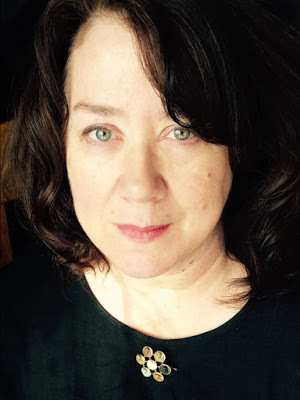 Marina Endicott’s
latest book,
Close to Hugh
, was long-listed for the Giller Prize and named one of CBC’s Best Books of 2015. Her last,
The Little Shadows
, was long-listed for the Giller and short-listed for the Governor General’s award. Her novel
Good to a Fault
, a finalist for the 2008 Scotiabank Giller Prize, was a CBC Canada Reads book and won the Commonwealth Writers’ Prize. She teaches creative writing at the Banff Centre, U of T, and at the Augustana Campus of the University of Alberta.
Marina Endicott’s
latest book,
Close to Hugh
, was long-listed for the Giller Prize and named one of CBC’s Best Books of 2015. Her last,
The Little Shadows
, was long-listed for the Giller and short-listed for the Governor General’s award. Her novel
Good to a Fault
, a finalist for the 2008 Scotiabank Giller Prize, was a CBC Canada Reads book and won the Commonwealth Writers’ Prize. She teaches creative writing at the Banff Centre, U of T, and at the Augustana Campus of the University of Alberta.She was writer-in-residence at the University of Alberta during the 2012-13 academic year.
Q: When you began your residency, you’d been publishing books for about a decade. Where did you feel you were in your writing? What did the opportunity mean to you?
A: I’d published three novels, and was working on my fourth, Close to Hugh. I don’t know if at some point one feels steady and competent in the practice of writing novels—after writing each novel I think okay, I know how to write that one. But the next one is a giant mystery. The residency gave me a long vista of concentrated, dedicated time to figure out how to write Hugh. When I started in September I had a couple of early scenes written, but hadn’t shown them to anyone. Each September the program hosts a reading where the new WIR reads with the departing WIR. I read from those scenes, haltingly, even with some slight despair. Greg Hollingshead laughed at me afterwards. “That was interesting to watch,” he said. “You read, and you suffered, and you read, and you suffered…”
By the end of the residency I had a complete draft of Hugh—much faster than I’d ever managed to produce a first draft before. It was a great relief to read from the final scenes of Hugh at the introductory reading for Erin Mouré, who followed me as WIR. I guess somehow through the intervening year, I learned how to write this one.
Besides the practical assistance and the relief of completing a draft, it was an honour to sit in the fishbowl office (those windows, open to the atrium, display every short burst of typing and every session of sweet silent slack-jawed thought) and to join the ranks of writers I admire who have done this venerable residency, and will do it in future.
Q: Given the fact that you weren’t an Alberta writer, were you influenced at all by the landscape, or the writing or writers you interacted with while in Edmonton? What was your sense of the literary community?
A: It’s funny—how do we define these things? I’ve lived in Alberta for the past 25 years, so I guess I’m an Alberta writer. But I came late to this country, and my thinking and experience formed elsewhere: in British Columbia, until I was six; in Nova Scotia, where I mostly grew up; in Ontario, where I went to school and began my adult life; in England, where I started to write seriously; in Saskatchewan, where I found my real career and met my husband, who shanghaied me to Alberta. I’ve been everywhere, man.
Because we lived first in Mayerthorpe, I was isolated from the Alberta literary community, which I don’t think I’ve ever really joined. My sense is that it’s disjointed, unlike Saskatchewan’s close-knit writing klatch. It seems to me that rather than the kind of labour union of writers that Saskatchewan created, in Alberta the community is looser, pockets of friends talking to each other and supporting one another. Nothing wrong with that. We want to work with our friends. My friends here have been the many great writers I worked with in the library residency I started in Cochrane, including Fred Stenson and Peter Oliva, and up in Edmonton my writing companions Lynn Coady, Jocelyn Brown, and Jacqueline Baker. I think I’ve moved along that shifting axis from extrovert far over to introvert, as maybe we tend to do as we age. Once I wanted a big community—now I work better if I mostly talk to a couple of people.
Q: Ah! I didn’t realize. I’d somehow had the impression you arrived in Edmonton for the position from Saskatchewan, and simply remained. You mention a library residency you founded in Cochrane: was this something founded before or after your time at University of Alberta?
A: Before—we were in Cochrane, just outside Calgary, for 11 years, until 2008. Longer than Peter or I had ever lived any place in our lives. Needing a job, I went to the local librarian and said I think you should have a writing program here, with a writer in residence. He was amenable, so I did the grant applications and got the program started and was the first WIR of many, including Peter Oliva, Fred Stenson and Peter Norman. I also ran a reading series in conjunction with the University of Calgary and Canada Council, with luminaries like Elizabeth Hay, Alastair MacLeod and Sheila Heti. Each reading paired a local writer with the visitor. My children grew up going to readings every week, and consequently refuse to go to a single one of mine these days. That’s okay, they’ve heard enough.
Q: How did you engage with students and the community during your residency? Were there any encounters that stood out?
A: The usual way: people came trooping along the hall and handed me their stuff; I read it with care and often with great pleasure, and then talked to them. All we can do, all that needs to be done, is to pay attention.
Encounters that stood out: a young military officer brought in a folder of remarkable poems; I read several really good short stories; and just last week I wrote a blurb for Lisa Lawrence, whose YA manuscript, about to be published by Orca, was one of the most honest and exciting manuscripts I read during my residency.
Q: Looking back on the experience now, how do you think it impacted upon your work?
A: One of the best things about this residency is that it demands nothing—no socializing or scheduling events or running anything, no administration at all. I sat in the fishbowl office and wrote my head off. When I had written myself out, I read other people’s work, trying to see what was best about it and how it could be better. A year of that is good for the mind and the soul, and I believe the quiet, concentrated time to think made Close to Hugh a better book. Like that lovely thing about the Duchess of Malfi, the residency stains the time past, and I hope it will continue to light the work to come.
Published on June 17, 2016 05:31
June 16, 2016
12 or 20 (second series) questions with John Nyman
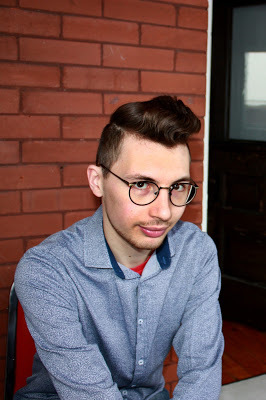 John Nyman's
verse, visual, and conceptual poems and poetics have appeared in a variety of print and online publications including Rampike, (parenthetical),
Cordite Poetry Review
, and
Hamilton Arts and Letters
. His debut collection of poems,
Players
, was released by Palimpsest Press in April 2016. Originally from Toronto, John is currently completing a PhD in Theory and Criticism at Western University in London, Ontario.
John Nyman's
verse, visual, and conceptual poems and poetics have appeared in a variety of print and online publications including Rampike, (parenthetical),
Cordite Poetry Review
, and
Hamilton Arts and Letters
. His debut collection of poems,
Players
, was released by Palimpsest Press in April 2016. Originally from Toronto, John is currently completing a PhD in Theory and Criticism at Western University in London, Ontario.1 - How did your first book change your life? How does your most recent work compare to your previous? How does it feel different?
Players is my first book, and not much has changed yet. Except that I seem to spend more time writing emails.
2 - How did you come to poetry first, as opposed to, say, fiction or non-fiction?
I actually came to poetry second, thinking at first that I’d find my way writing short stories. What attracted me to poetry, though, was its apparent openness to experimentation: I wanted to test the limits of language, and I considered poetry the best platform for doing so. I’m much more skeptical today about the extent to which poetry actually has this power, but the idea still informs my writing to a great degree.
3 - How long does it take to start any particular writing project? Does your writing initially come quickly, or is it a slow process? Do first drafts appear looking close to their final shape, or does your work come out of copious notes?
My answers to all of these vary depending on the poem in question. In a sense, I try to never pursue a project the same way I’ve pursued another one.
A handful of poems in Players came out of pretty memorable compositional processes. For “Naked Baby,” I started with a sort of bestiary of words that had the visual and sonic shape I wanted to represent the scene, then constrained myself to using only those words in the poem. “Myself as a Dictator” was written in a similar way, although my vocabulary for that piece was sourced from Hannah Arendt’s The Origins of Totalitarianism. My working notes for “Love Song for Kazoo” are probably the strangest: while I had originally been experimenting with writing interlinear additions to rap lyrics, over the course of a few drafts the additions drifted from the source material and became the first stanzas of a love poem.
4 - Where does a poem usually begin for you? Are you an author of short pieces that end up combining into a larger project, or are you working on a "book" from the very beginning?
For me, poetry is less about creation or craft than it is about invention: my poems usually begin with the question, “Can this be done?” Often, it doesn’t take much time or space to answer this question. But occasionally it takes much more. Some of my projects, especially my visual and conceptual projects, have ended up demanding monstrous amounts of repetitive, detail-oriented labour to become realities. Invention works on a timescale that has little to do with human life’s.
5 - Are public readings part of or counter to your creative process? Are you the sort of writer who enjoys doing readings?
Part of, and yes. I’ve learned a lot from attending readings, reading my own work publicly, and using readings as a platform to try things I’ve never seen anyone do before. Mostly, though, I just like to talk, and I don’t mind talking in front of others.
On the other hand, I also believe that written and spoken poetry are two different genres of art—probably more than two, actually. I enjoy them both because, in my case, their variance activates my creativity.
6 - Do you have any theoretical concerns behind your writing? What kinds of questions are you trying to answer with your work? What do you even think the current questions are?
Yes, many. And I’m not proud to say I spend a lot more time thinking about them than I do writing.
One of the bigger questions is a familiar one, a cliché: What can words do? Over time I’ve come to believe that this question doesn’t mean much outside its particular instances, which is why I try to write.
Another question I’ve been preoccupied with lately: What does it mean to be small, or to have a small voice? I’ve heard a lot of poets describe their project as an affirmation or restoration of humanity, in a very broad sense. Personally I think this aim is silly, considering that we’re living in a world in which non-human forces—digital computation, techno-science, capital—are increasingly demonstrating they can get along fine without us. But I think it’s equally silly to turn around and proclaim an entirely post-human poetry—for example, a poetry written for the robots or aliens that’ll come to populate the future—as if humanity were in a rush to disappear. The significance of humanity, like that of poetry, is shrinking—shrinking, but not zero. If poetry has anything authentic to say, it might be about that.
Finally: It can’t be acceptable for a writer like me (white, male, straight, the list goes on) not to be concerned with the question of how to account for the exclusivity and normativity of poetry, the literary tradition, and the avant-garde—in short, of the cultural authority to claim to have something significant to say at all. I don’t have an answer to this question, though I could point out any number of people I think are doing it wrong. Perhaps most importantly, I don’t believe anyone can justify the premise that maintaining their own creative practice could only help solve the problem, that they should at least ‘keep writing’; there is nothing necessarily ethical about persistence, about equal representation for every individual who raises their voice, or even about expressing oneself in general. If I have not already done harm, as a writer (especially a publishing writer) I at least risk doing harm.
7 – What do you see the current role of the writer being in larger culture? Does s/he even have one? What do you think the role of the writer should be?
“The writer” should know that words do things, understand something about how they do things, and—at the right time and place—make them do things.
8 - Do you find the process of working with an outside editor difficult or essential (or both)?
I love it. I love the idea of my poetry being less ‘mine,’ and I love to learn about myself from others. The more editors, the better.
9 - What is the best piece of advice you've heard (not necessarily given to you directly)?
About writing: I’ve overheard any number of gnomic statements about the percentage of words that should be cut from a first draft, ranging from the numerically reasonable to the practically absurd. My impulses point toward the absurd.
In general: My answer is probably somewhere in the disputed borderlands between my Dad’s advice—“be good”—and my public school multiculturalist TVO Kids childhood’s advice—“be yourself.”
Finally: An out-of-context, untranslatable sentence fragment of Derrida’s: “all is not to be thought at one go.”
10 - How easy has it been for you to move between genres (poetry to critical prose)? What do you see as the appeal?
1) Very easy. No one spends their whole life speaking just one kind of language.
2) Why not?
11 - What kind of writing routine do you tend to keep, or do you even have one? How does a typical day (for you) begin?
Very recently, I’ve worked up a habit of free-writing lines for my houseplants while listening to news radio, first thing in the morning. But over the years the only routine I’ve kept up consistently is eating breakfast every day, and I’m still not convinced that it isn’t a detriment to my writing.
12 - When your writing gets stalled, where do you turn or return for (for lack of a better word) inspiration?
I don’t take an active approach to it. Perhaps I won’t write anything for a few months, then I’ll think of something new and it’ll lead me to writing. Sometimes I fantasize that one day I’ll stop writing all of a sudden—like a premature death—and never return to it. The thought doesn’t scare me.
13 - What fragrance reminds you of home?
Cigarette smoke (for my childhood home) and laundry detergent (for home now).
14 - David W. McFadden once said that books come from books, but are there any other forms that influence your work, whether nature, music, science or visual art?
In strict terms, I rarely write about or after books, at least consciously. For me the upshot of books is that they create a motivation or impulse to approach something else, and it’s most often that “something else” that I try to push back towards written language with my poetry. Some of my favourite topics are visual art, film and television, rap music, and the Toronto transit system.
On the other hand, graduate school and postmodernism have taught me that everything is book-like. So I’d like to think that poetry is right at home with anything poetry might be ‘about,’ each object being its own node of reception, communication, and distortion.
15 - What other writers or writings are important for your work, or simply your life outside of your work?
I hate naming names, but some authors I’ve been into lately include Fyodor Dostoyevsky, Phil Hall, F.T. Marinetti, Erin Mouré, Rachel Zolf, Tom Phillips, Vanessa Place.
I don’t read enough literature, though. Non-literary authors I’m thinking about include Gaston Bachelard, Catherine Malabou, Maurice Merleau-Ponty, Jacques Rancière. And I am almost always reading something by Derrida.
16 - What would you like to do that you haven't yet done?
Shave my head.
17 - If you could pick any other occupation to attempt, what would it be? Or, alternately, what do you think you would have ended up doing had you not been a writer?
In another life, I’m an accountant who spends his nights playing grand strategy games.
18 - What made you write, as opposed to doing something else?
Writing isn’t a single act or decision, it’s just something I end up with again and again. So it depends on what else I could be doing at a given time and place.
19 - What was the last great book you read? What was the last great film?
The last great book I read was Phil Hall’s Killdeer.
I haven’t seen any great films recently, so I’m going to amend the question. The last great videogame I played was Undertale.
20 - What are you currently working on?
A collection of poems written for my houseplants.
12 or 20 (second series) questions;
Published on June 16, 2016 05:31
June 15, 2016
Hillary Gravendyk and Cynthia Arrieu-King, unlikely conditions
I never could have come back to writing because someone started a google doc with me, but because that person gave me the gift of her deep care. She showed up, morning after morning, to help me get back to myself. Our friendship was made up of all this material between us, especially since we’d never lived in the same city. So our friendship was documents—emails, texts, chat transcripts, google docs, photographs, and especially poems. Our friendship was the material of poetry, which we wrote together every day. She wrote as much as I did when I wrote, every time I wrote. And I came to understand that the hours of writing together were most important—the poems were the happy accident of a friend caring for another, at least at first. All my collaborations, I thought, they are all just records of care, of friendship, of love. The poems don’t matter.
And yet, and yet. They are everything, these poems between us. (“Only Collaborate,” Hillary Gravendyk)
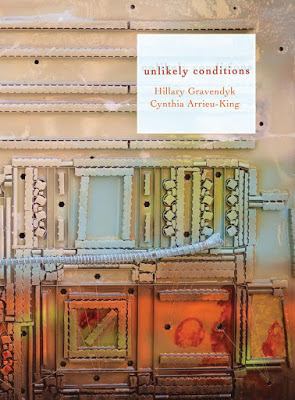 I hadn’t realized that the poems that the late Hillary Gravendyk (March 1, 1979 - May 10, 2014) [see my obituary for her here] was working on with Cynthia Arrieu-King had progressed as far as they had, newly released as the collaborative poetry collection
unlikely conditions
(1913 Press, 2016). Around the time Gravendyk died, there was mention of a work-in-progress, but I had no idea that it was as developed as it was. With Gravendyk’s short postscript “Only Collaborate” to close the small collection, I’m curious as to Arrieu-King’s thoughts on the process of collaboration generally, and more specifically, with a poet such as Gravendyk. While I understand, on some level, wanting to allow Gravendyk to speak (in a powerful introduction that speaks to how the collaboration, and specifically, Arrieu-King’s friendship, prompted her to return to herself, as well as her own writing), this was a collaboration, after all, of equals, equally; why would Arrieu-King not have, possibly, included an introduction? The most she does is at the end, in the notes, that write: “These poems were written beginning in March 2008 until May of 2014—sometimes while we were sitting in her home in San Francisco or Los Angeles, but mostly while she was on the West Coast and I was on the East Coast.”
I hadn’t realized that the poems that the late Hillary Gravendyk (March 1, 1979 - May 10, 2014) [see my obituary for her here] was working on with Cynthia Arrieu-King had progressed as far as they had, newly released as the collaborative poetry collection
unlikely conditions
(1913 Press, 2016). Around the time Gravendyk died, there was mention of a work-in-progress, but I had no idea that it was as developed as it was. With Gravendyk’s short postscript “Only Collaborate” to close the small collection, I’m curious as to Arrieu-King’s thoughts on the process of collaboration generally, and more specifically, with a poet such as Gravendyk. While I understand, on some level, wanting to allow Gravendyk to speak (in a powerful introduction that speaks to how the collaboration, and specifically, Arrieu-King’s friendship, prompted her to return to herself, as well as her own writing), this was a collaboration, after all, of equals, equally; why would Arrieu-King not have, possibly, included an introduction? The most she does is at the end, in the notes, that write: “These poems were written beginning in March 2008 until May of 2014—sometimes while we were sitting in her home in San Francisco or Los Angeles, but mostly while she was on the West Coast and I was on the East Coast.”For those unaware, Gravendyk was the author of the poetry collection Harm (Omnidawn, 2011) [see my review of such here; and some of the post-Harm poems I was fortunate enough to post via Dusie], and Arrieu-King is the author of a number of collections, including People are Tiny in Paintings of China (Octopus, 2010) and Manifest (Switchback Books, 2013), with a note in her author biography that she “is working with Omnidawn Press and its editor Rusty Morrison on Hillary’s final poems, to be released in 2017.”
Practice
A perfect match is a cold predicament.Imagine a stack of Necco wafers, a flock ofgray birds, schoolchildren. Arrows arrayedagainst each other might look
the same, but would we call it perfect?One perfects when one approachesthe original purpose. Our definitions say nothingof what, after all, we reach.
We perfect the art of things and oneis our own arrogance. But another isfailure, and a third isapproximation, and every art
perfected is a kind of love or at least a kind of wonder.So then let’s line up every heart in the room:a row of wounded animals.
Let’s see who flies and who creeps.
The short, sharp lyrics that make up unlikely conditions are all collaborations between the two, but for three exceptions each, listed at the back of the collection. The poems are thoughtful, introspective and intimate, as though we are witnessing everything said between two individuals close enough that their individual patter and patterns become indistinguishable. I’m quite fond of collaboration [for example: here, here and here], having seen a number of projects emerge over the years, and this might be one of the most coherent I’ve seen, managing a solid, consistant voice and tone throughout, making me more curious about the work of Arrieu-King, a poet whose work I’m otherwise unfamiliar with.
Published on June 15, 2016 05:31
June 14, 2016
Queen Mob’s Teahouse: Three Bloody Words: an interview with Stephanie Bolster
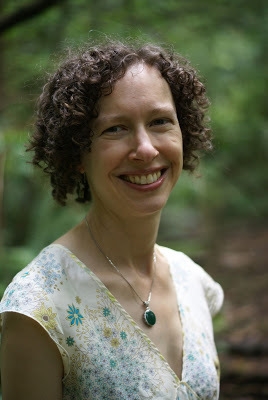 As my tenure as interviews editor at Queen Mob's Teahouse continues, the tenth interview is now online:
an interview I did with Stephanie Bolster on the twentieth anniversary reissue of her first poetry chapbook, Three Bloody Words (above/ground press, 1996/2016)
. Other interviews from my tenure include: an interview with poet, curator and art critic Gil McElroy, conducted by Ottawa poet Roland Prevost, an interview with Toronto poet Jacqueline Valencia, conducted by Lyndsay Kirkham, an interview with Drew Shannon and Nathan Page, also conducted by Lyndsay Kirkham, an interview with Ann Tweedy conducted by Mary Kasimor, an interview with Katherine Osborne, conducted by Niina Pollari, an interview with Catch Business, conducted by Jon-Michael Frank and a conversation between Vanesa Pacheco and T.A. Noonan, "On Translation and Erasure," existing as an extension of Jessica Smith's The Women in Visual Poetry: The Bechdel Test, produced via Essay Press.
As my tenure as interviews editor at Queen Mob's Teahouse continues, the tenth interview is now online:
an interview I did with Stephanie Bolster on the twentieth anniversary reissue of her first poetry chapbook, Three Bloody Words (above/ground press, 1996/2016)
. Other interviews from my tenure include: an interview with poet, curator and art critic Gil McElroy, conducted by Ottawa poet Roland Prevost, an interview with Toronto poet Jacqueline Valencia, conducted by Lyndsay Kirkham, an interview with Drew Shannon and Nathan Page, also conducted by Lyndsay Kirkham, an interview with Ann Tweedy conducted by Mary Kasimor, an interview with Katherine Osborne, conducted by Niina Pollari, an interview with Catch Business, conducted by Jon-Michael Frank and a conversation between Vanesa Pacheco and T.A. Noonan, "On Translation and Erasure," existing as an extension of Jessica Smith's The Women in Visual Poetry: The Bechdel Test, produced via Essay Press.Further interviews I've conducted myself over at Queen Mob's Teahouse include conversations with Claire Farley on Canthius, Dale Smith on Slow Poetry in America, Allison Green, Meredith Quartermain, Andy Weaver, N.W Lea and Rachel Loden.
If you are interested in sending a pitch for an interview my way, check out my "about submissions" write-up at Queen Mob's ; you can contact me via rob_mclennan (at) hotmail.com
Published on June 14, 2016 05:31

